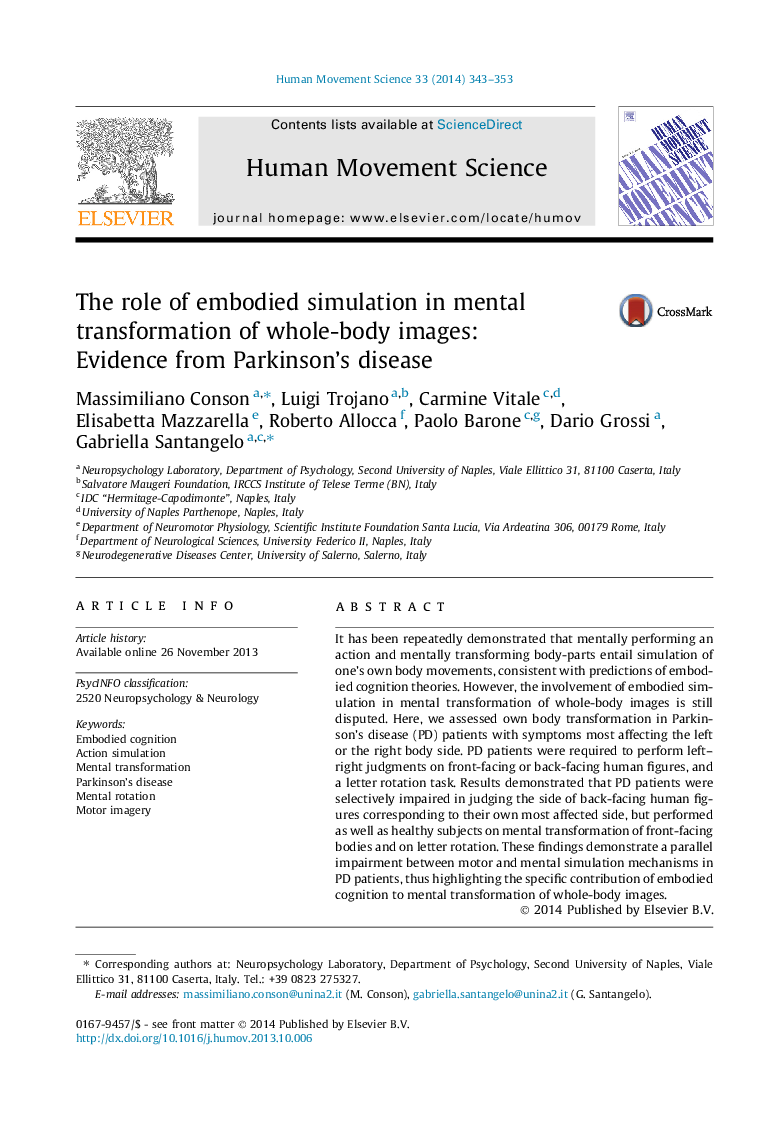| Article ID | Journal | Published Year | Pages | File Type |
|---|---|---|---|---|
| 7292596 | Human Movement Science | 2014 | 11 Pages |
Abstract
It has been repeatedly demonstrated that mentally performing an action and mentally transforming body-parts entail simulation of one's own body movements, consistent with predictions of embodied cognition theories. However, the involvement of embodied simulation in mental transformation of whole-body images is still disputed. Here, we assessed own body transformation in Parkinson's disease (PD) patients with symptoms most affecting the left or the right body side. PD patients were required to perform left-right judgments on front-facing or back-facing human figures, and a letter rotation task. Results demonstrated that PD patients were selectively impaired in judging the side of back-facing human figures corresponding to their own most affected side, but performed as well as healthy subjects on mental transformation of front-facing bodies and on letter rotation. These findings demonstrate a parallel impairment between motor and mental simulation mechanisms in PD patients, thus highlighting the specific contribution of embodied cognition to mental transformation of whole-body images.
Keywords
Related Topics
Life Sciences
Neuroscience
Cognitive Neuroscience
Authors
Massimiliano Conson, Luigi Trojano, Carmine Vitale, Elisabetta Mazzarella, Roberto Allocca, Paolo Barone, Dario Grossi, Gabriella Santangelo,
